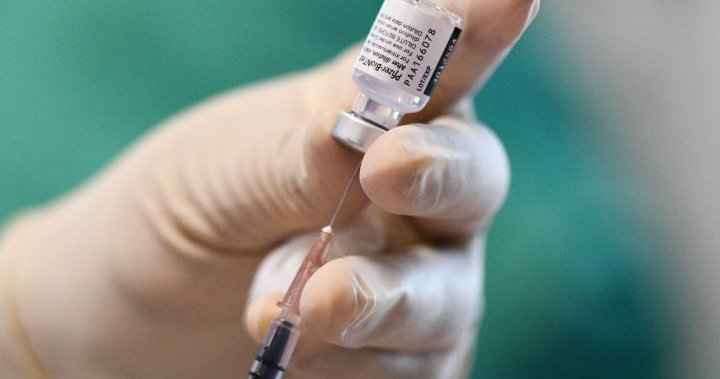
COVID-19 booster shots could rake in billions for some vaccine makers
Global News
For Pfizer and Moderna, the COVID-19 vaccine boosters could be more profitable than the original doses because they won't come with research and development costs.
Billions more in profits are at stake for some vaccine makers as the U.S. moves toward dispensing COVID-19 booster shots to shore up Americans’ protection against the virus.
How much the manufacturers stand to gain depends on how big the rollout proves to be.
Exactly who should get a booster was a contentious decision as advisers to the Centers for Disease Control and Prevention spent two days this week poring over the evidence. CDC director Dr. RochelleWalensky endorsed most of their choices: People 65 and older, nursing home residents and those ages 50 to 64 who have chronic health problems such as diabetes should be offered one once they’re six months past their last Pfizer dose. Those 18 and older with health problems can decide for themselves if they want a booster.
Still, the crisis is constantly evolving, and some top U.S. health officials expect boosters will be more broadly authorized in the coming weeks or months. And that, plus continued growth in initial vaccinations, could mean a huge gain in sales and profits for Pfizer and Moderna in particular.
“The opportunity quite frankly is reflective of the billions of people around the world who would need a vaccination and a boost,” Jefferies analyst Michael Yee said.
Wall Street is taking notice. The average forecast among analysts for Moderna’s 2022 revenue has jumped 35% since President Joe Biden laid out his booster plan in mid-August.
Most of the vaccinations so far in the U.S. have come from Pfizer, which developed its shot with Germany’s BioNTech, and Moderna. They have inoculated about 99 million and 68 million people, respectively. Johnson & Johnson is third with about 14 million people.
No one knows yet how many people will get the extra shots. But Morningstar analyst Karen Andersen expects boosters alone to bring in about $26 billion in global sales next year for Pfizer and BioNTech and around $14 billion for Moderna if they are endorsed for nearly all Americans.













